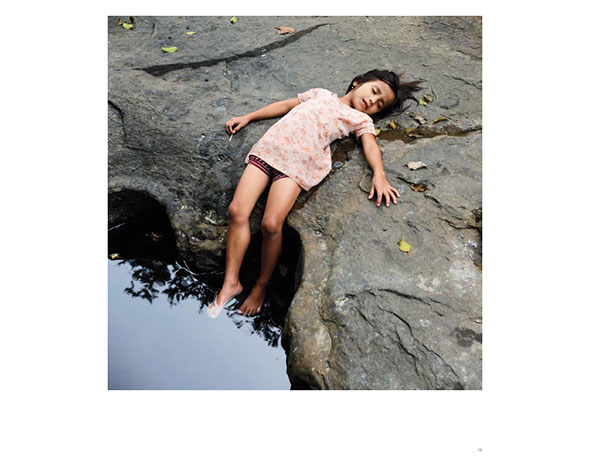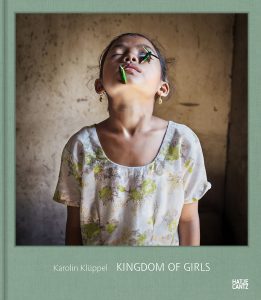Interview with Gold Award Winner Karolin Klüppel

On 10 October 2015, Dr. Bernhard Klofat presented the Felix Schoeller Photo Award in Gold to the German photographer Karolin Klüppel, who was born in Kassel. The award also included a cash prize of 10,000 euros. One year later, we chatted with Karolin Klüppel about how the award has affected such a dedicated photographer. One thing is sure: the past twelve months have been a very exciting time for Karolin Klüppel.
Ms Klüppel, what motivated you to take part in the Felix Schoeller Award 2015? What hopes did you have when you entered your work in the ‘Portrait’ category?
I hoped that my work would become a little better known in Germany – and that it would be shown in Osnabrück.
How do you see the place of your work in the competition after having seen the work of all the award winners and nominees in the exhibition that accompanied the award ceremony?
I found that all the nominated and award winning photos were exceptionally powerful images. Many of the portfolios had a very political theme; so I was rather surprised that my project, ‘Mädchenland’, won the award in gold without any connection to current political issues.
How did you feel when you found out you had won the award in gold?
I was very happy, of course. Particularly because I had just begun my next project in China, and urgently needed funding.
Your work has found widespread critical acclaim. Could you tell us where and in what ways?
Yes, my work has since been shown at numerous photographic festivals, even in Delhi and Chennai (Ed. the capital city of the Indian state of Tamil Nadu, also known as Madras), which really means a lot to me. ‘Mädchenland’ has also been published in several prominent magazines – for instance in the New York Times and the international edition of National Geographic.
We have heard that you are working on a book. Or has it already been published? Could you tell us more about it.
‘Mädchenland’ was published by Hatje Cantz on 19 September, with the title ‘Kingdom of Girls’. We worked on it all summer, and I’m very pleased about how it turned out.
How do you think the Felix Schoeller Photo Award compares with other competitions?
The prize money of the Felix Schoeller Award is very high, and there are awards presented to several photographers, that’s really good. The publicity and PR is very good and the exhibition in Osnabrück was exceptionally well organised and presented.
How long did your project take?
I was in India for a total of ten months, spread over a period of two years. I see the book as the final part of the project. Considering I began the project in October 2013, that makes it exactly three years.
Has anything changed since you won the award?
It certainly has! As I work exclusively on freelance projects, the prize money now allows me to concentrate fully on my new project.
What projects will you be working on in the near future? What are you currently working on?
I’m currently working on a photographic documentation of the lives of the matriarchs of the Mosuo in China. The Mosuo are a small, matriarchal ethnic group with a population of around 40,000 who live in the Yunnan and Sichuan Provinces of China. Unfortunately, their culture and way of life is under threat due to the undermining of matriarchal structures by the rural exodus of young Mosuo, the influx of Han Chinese into the region and growing tourism.
To close, the obligatory question: will you be taking part in the next Felix Schoeller Photo Award competition?
Definitely!


 Karolin Klüppel
Karolin Klüppel
Born 1985 in Kassel, Germany, she studied photography at the city’s School of Art and Design and made a vertical take-off with exhibitions in Arles, Geneva and New York. The images of her portfolio titled ‘Mädchenland’, her winning entry for the Felix Schoeller Photo Award, are taken from a series of pictures shot for the international edition of National Geographic. Her work has also been honoured with the Canon ProfiFoto award for young photographers and has since appeared in a number of international publications. The photographer spent a total of ten months in the Khasi village of Mawlynnong between 2013 and 2015 and captured magical images including those contained in her award-winning entry. Since September, they can now also be seen in her book titled ‘Kingdom of Girls’ (published by Hatje Cantz). The award-winner has lived and worked in Berlin since 2010.

